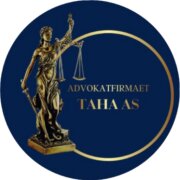Best Arrests & Searches Lawyers in Oslo
Share your needs with us, get contacted by law firms.
Free. Takes 2 min.
List of the best lawyers in Oslo, Norway
About Arrests & Searches Law in Oslo, Norway
In Oslo, Norway, the laws surrounding arrests and searches are formulated to balance the state's duty to maintain public order and the individual's right to privacy and fair treatment. Specific statutes and legal guidelines are set out to regulate how arrests should be carried out and under what circumstances searches can be conducted. Key legislative frameworks include the Norwegian Criminal Procedure Act and various human rights provisions stipulated in national and international law.
Why You May Need a Lawyer
Several situations might necessitate the expertise of a lawyer specializing in arrests and searches:
- Unlawful Arrest: If you believe you have been arrested without proper legal grounds.
- Challenging a Search Warrant: To contest the legality of a search warrant issued against you.
- Violation of Rights: If your rights during an arrest or search have been infringed upon.
- Criminal Charges: Legal representation in court if an arrest leads to criminal charges.
- Seeking Damages: To pursue compensation for wrongful arrest or illegal search.
Local Laws Overview
The laws regulating arrests and searches in Oslo, Norway, include:
- Norwegian Criminal Procedure Act: This act lays down the procedural rules relating to arrests, including the grounds on which an arrest can be made, the rights of the arrested person, and how searches should be conducted.
- Human Rights Protections: National legislation and international conventions, such as the European Convention on Human Rights, safeguard against arbitrary detention and ensure the right to privacy and fair treatment.
- Search and Seizure Rules: Specific provisions cover the circumstances under which property can be searched or seized, ensuring that such actions are conducted lawfully and respectfully.
Frequently Asked Questions
1. What are my rights if I am arrested in Oslo?
If you are arrested in Oslo, you have the right to be informed of the reason for your arrest, the right to contact a lawyer, and the right to remain silent. You also have the right to be treated humanely and not to be subjected to excessive force.
2. When can the police conduct a search without a warrant?
The police may conduct a search without a warrant under certain conditions, such as if they have reasonable grounds to believe that immediate action is required to prevent evidence from being destroyed or if the search is incidental to a lawful arrest.
3. Can I refuse a search if there is no warrant?
You have the right to refuse a search if there is no warrant, except under certain exigent circumstances where the police are legally permitted to conduct a search without one.
4. What should I do if I believe my rights have been violated during an arrest or search?
If your rights have been violated, you should document the incident, collect any evidence available, and seek legal advice to understand your options for recourse.
5. How long can I be detained without charges in Oslo?
You can be detained for up to 48 hours without charges. After this period, the police must either release you or bring you before a judge to decide on the legality of further detention.
6. What grounds must be present for a search warrant to be issued?
A search warrant will generally be issued if there is probable cause to believe that a search will uncover evidence related to a crime. The warrant must be specific about the location to be searched and the items sought.
7. Can I be present during the search of my property?
Yes, if you are available, you have the right to be present during the search of your property. If you are not present, a representative can be there on your behalf.
8. What is considered unlawful arrest?
An arrest is considered unlawful if it is conducted without proper legal grounds, such as lack of probable cause or without a proper warrant, where one is required.
9. How can I challenge an unlawful search or arrest?
You can challenge an unlawful search or arrest by filing a complaint with the police department, seeking a court order to suppress evidence obtained unlawfully, or initiating a lawsuit for any damages suffered.
10. How do I find a lawyer specializing in arrests and searches in Oslo?
You can find a specialized lawyer through recommendations, legal directories, the Norwegian Bar Association, or by seeking referrals from local legal aid organizations.
Additional Resources
Here are some resources that might be helpful:
- Norwegian Bar Association: Offers referrals to lawyers specializing in various fields, including arrests and searches.
- Norwegian Police Directorate: Provides information and guidelines on police procedures and citizen rights.
- Legal Aid Services: Various organizations in Oslo offer free or low-cost legal assistance.
- Norwegian Courts Administration: For information on how to access the court system and your rights during legal proceedings.
Next Steps
If you require legal assistance related to arrests and searches, consider the following steps:
- Contact a Lawyer: Reach out to a lawyer with experience in criminal law and procedures to discuss your case.
- Document Everything: Keep detailed records of all interactions with law enforcement and any incidents that occurred.
- File Complaints if Necessary: If your rights have been violated, consider filing a complaint with the relevant authorities.
- Seek Legal Aid: If you cannot afford a lawyer, look into legal aid organizations that can provide assistance.
Lawzana helps you find the best lawyers and law firms in Oslo through a curated and pre-screened list of qualified legal professionals. Our platform offers rankings and detailed profiles of attorneys and law firms, allowing you to compare based on practice areas, including Arrests & Searches, experience, and client feedback.
Each profile includes a description of the firm's areas of practice, client reviews, team members and partners, year of establishment, spoken languages, office locations, contact information, social media presence, and any published articles or resources. Most firms on our platform speak English and are experienced in both local and international legal matters.
Get a quote from top-rated law firms in Oslo, Norway — quickly, securely, and without unnecessary hassle.
Disclaimer:
The information provided on this page is for general informational purposes only and does not constitute legal advice. While we strive to ensure the accuracy and relevance of the content, legal information may change over time, and interpretations of the law can vary. You should always consult with a qualified legal professional for advice specific to your situation.
We disclaim all liability for actions taken or not taken based on the content of this page. If you believe any information is incorrect or outdated, please contact us, and we will review and update it where appropriate.















